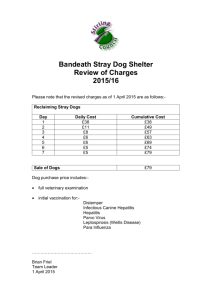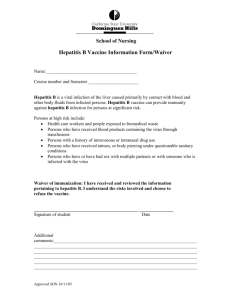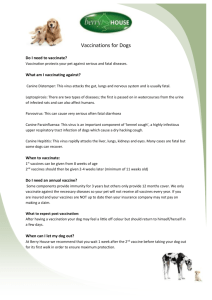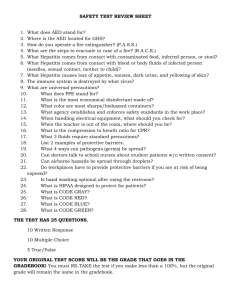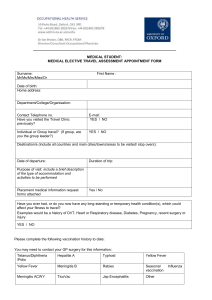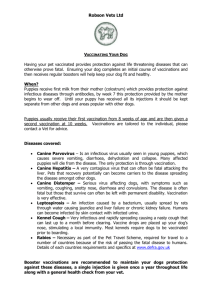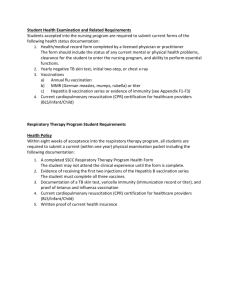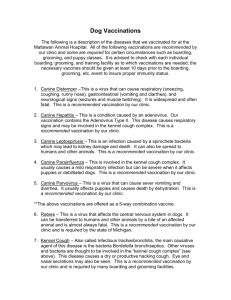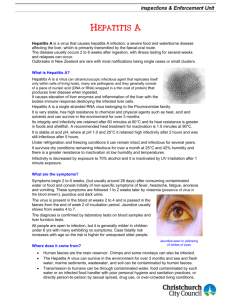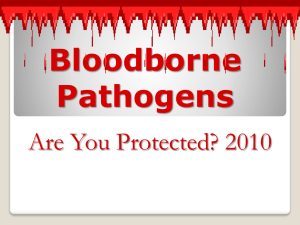Hepatitis-adenovirus Infection
advertisement
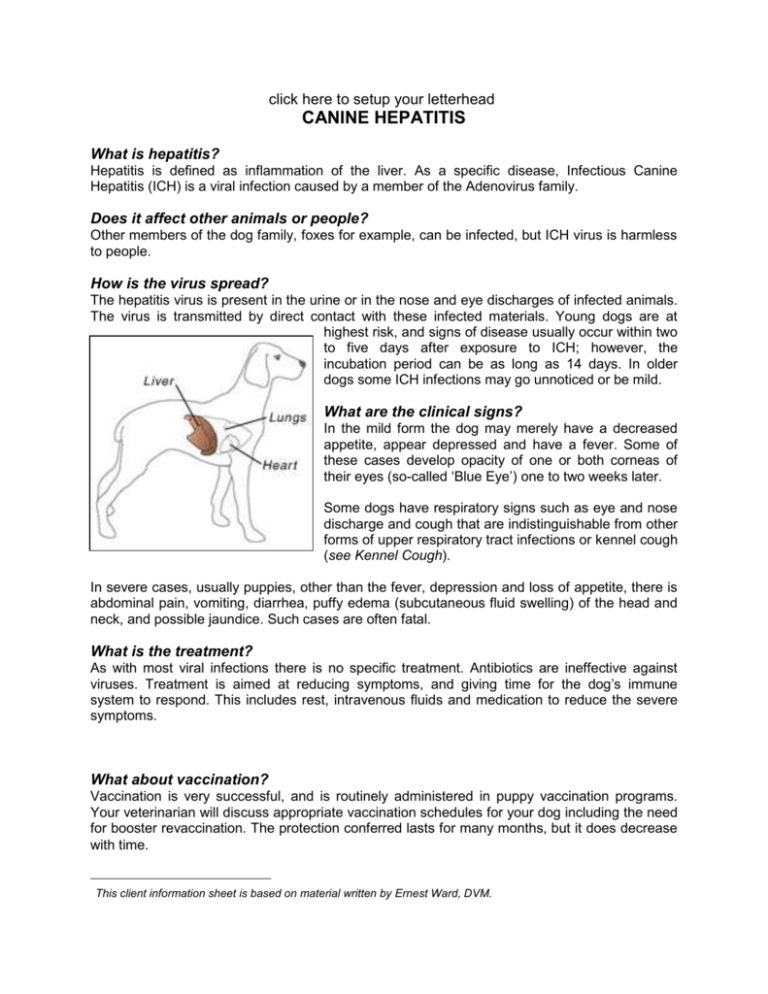
click here to setup your letterhead CANINE HEPATITIS What is hepatitis? Hepatitis is defined as inflammation of the liver. As a specific disease, Infectious Canine Hepatitis (ICH) is a viral infection caused by a member of the Adenovirus family. Does it affect other animals or people? Other members of the dog family, foxes for example, can be infected, but ICH virus is harmless to people. How is the virus spread? The hepatitis virus is present in the urine or in the nose and eye discharges of infected animals. The virus is transmitted by direct contact with these infected materials. Young dogs are at highest risk, and signs of disease usually occur within two to five days after exposure to ICH; however, the incubation period can be as long as 14 days. In older dogs some ICH infections may go unnoticed or be mild. What are the clinical signs? In the mild form the dog may merely have a decreased appetite, appear depressed and have a fever. Some of these cases develop opacity of one or both corneas of their eyes (so-called ‘Blue Eye’) one to two weeks later. Some dogs have respiratory signs such as eye and nose discharge and cough that are indistinguishable from other forms of upper respiratory tract infections or kennel cough (see Kennel Cough). In severe cases, usually puppies, other than the fever, depression and loss of appetite, there is abdominal pain, vomiting, diarrhea, puffy edema (subcutaneous fluid swelling) of the head and neck, and possible jaundice. Such cases are often fatal. What is the treatment? As with most viral infections there is no specific treatment. Antibiotics are ineffective against viruses. Treatment is aimed at reducing symptoms, and giving time for the dog’s immune system to respond. This includes rest, intravenous fluids and medication to reduce the severe symptoms. What about vaccination? Vaccination is very successful, and is routinely administered in puppy vaccination programs. Your veterinarian will discuss appropriate vaccination schedules for your dog including the need for booster revaccination. The protection conferred lasts for many months, but it does decrease with time. This client information sheet is based on material written by Ernest Ward, DVM. © Copyright 2005 Lifelearn Inc. Used with permission under license. February 16, 2016
